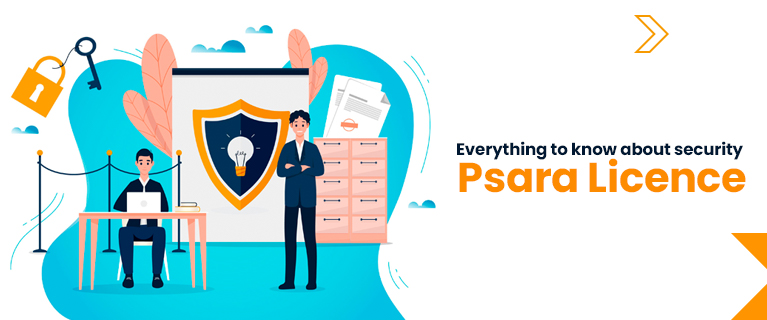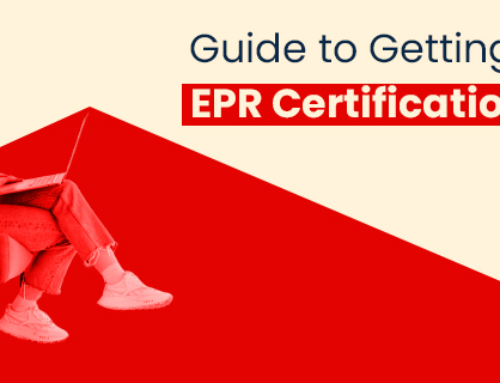Private security agencies are organizations that provide security services, including the training of security guards. These agencies are regulated by the Private Security Agencies Regulation Act, of 2005, also known as ‘PSARA.’ It is mandatory for private security agencies to obtain a security psara licence before starting their business or providing security services.
What Does a security psara licence mean?
Contents
- What Does a security psara licence mean?
- Statutory Requirements for a PSARA License:
- Eligibility Criteria for Applying for PSARA License
- How to get a security psara licence? : A complete procedure to get a license
- The renewal process of the security psara licence
- Compliance for security psara licence
- Conclusion
The Private Security Agencies Regulation Act (PSARA), 2005 is the governing legislation for all aspects of the private security agency business in India . In order to establish a security agency firm, individuals must first obtain a Psara license in India in accordance with the provisions of the PSARA Act. Additionally, approval must be requested from the Controlling Authority to provide service outside of India, and this authority must first approach the Central Government before granting such permission.
Statutory Requirements for a PSARA License:
All of the operations carried out by a facility that engages in the provision and training of security guards are governed by the Private Security Agencies Act, of 2005. According to the act, any agency that engages in these activities without acquiring the necessary license is not permitted to function in accordance with the act’s provisions.
The candidate would next have to fill out an application and submit it to the state where they currently reside. The license would be issued by the state agency. The requirements for applications may vary by state.. This type of license has no centralized system.
Eligibility Criteria for Applying for PSARA License
The following are the eligibility criteria for applying for a PSARA License in India:
Under the Private Security Agencies Regulation Act, of 2005, companies seeking registration under PSARA must be registered as one of the following business structures:
1. Sole Proprietorship
2. Limited Liability Partnership
3. One-Person Company
4. Private Limited Company
5. Partnership Firm
To be appointed as a director or principal officer of a Private Security Agency, individuals must meet the following criteria:
Must be an Indian resident
2. Must have a sound financial standing (proof required in the form of an ITR copy)
3. Must not have any criminal convictions and should have a clean background
Read Also This – Patent Registration in India
To be hired as a Security Guard in a Private Security Agency, individuals must fulfill the following criteria
1. Must be an Indian citizen
2. Age must be between 18 to 65
3. Must have received proper training
4. Must not have been terminated or removed from any government service
5. Must meet specific physical standards
6. Must provide character assurance to the Agency.
How to get a security psara licence? : A complete procedure to get a license
Step 1: Determine the prerequisites for a security psara licence
Understanding the prerequisites and eligibility requirements established by the regulating authority is crucial before submitting an application for a PSARA license. Learn the details of the Private Security Agencies Regulation Act as well as any extra rules or laws that apply just to your state. Make sure your organization satisfies all requirements before submitting the online application.
Step 2: Compile the necessary information and documents
You must compile the required paperwork and information before starting the online PSARA license application. This might comprise:
Business registration proof: Hand up your private security company’s registration documentation, such as the certificate of incorporation, partnership agreement, or proprietorship registration.
1. Identity proof: For the agency’s designated representative, submit identification documents such as a passport, PAN card, or Aadhaar card.
2. Address verification: For the agency’s registered office, provide documentation proving the address, such as utility bills or a lease agreement.
3.Financial documents: To show the agency’s financial stability, prepare financial records such as audited balance sheets and income statements.
4. Employee information: Learn how many people work for your company, as well as their backgrounds and certifications for training.
5. Equipment specifics: Prepare a list of the security tools and resources that your organization has access to, such as communication tools, alarm systems, and CCTV cameras.
6. Experience certificates: Integrate experience certificates for important employees in your organization that attest to their knowledge of and practical experience in the security sector.
Step 3: Go to the PSARA Online Portal.
Visit your state’s official PSARA web portal. Each state may have a specific website or gateway for the application for a security psara licence. Visit the portal and become familiar with the design, directions, and policies described there.
Step 4: Create & Register for an Account
By entering the necessary data, create an account on the PSARA online site. Your name, email address, phone number, and password are examples of this. Verify that the information supplied is accurate and secure.
Read Also This – How to Become a Patent Agent in India
Step 5: Finish the online application form
After you’ve made an account, use the PSARA online application page to access the form. Fill out the necessary information while carefully adhering to the given directions. Sections of the form may be designated for personal data, agency data, personnel data, equipment inventory, and other pertinent information. Before continuing, make sure all of the data was entered accurately.
1. Form I – Applicant’s Character and Antecedents Verification
2. Form II – Security Guard or Supervisor’s Character and Antecedents Verification
3. Form III – Character and Antecedents Certificate
4. Form IV-A – Training Certificate
5. Form V – Application for New License or License Renewal for Private Security Agency Business
6. Form VI – License for Private Security Agency Business
7. Form VII – Appeal Filing Form
8. Form VIII – Register of Particulars
9. Form IX – Photo ID Card for Private Security Guard and Supervisor
Step 6: Submitting Supporting Documents
During the online application process, you must submit the aforementioned supporting documents. Please ensure that the scanned copies are of high quality, easily readable, and comply with the prescribed file size limitations. Adhere to the portal’s guidelines concerning acceptable file formats and sizes for successful document uploads.
Step 7: Payment of Application Fee
As per the regulations set by the governing authority, proceed to pay the designated application fee. The PSARA online portal may offer multiple payment options, such as online banking, credit/debit card, or e-wallets. Upon completing the payment, make sure to obtain a confirmation receipt to validate the transaction.
Step 8: Examine the application and submit it
Before submitting the application, double-check the accuracy and completeness of all the supplied data and attached attachments. Any errors or missing information may cause the processing of your application to be delayed. When the application is finished and you are satisfied with it, submit it through the website.
Step 9: Monitoring the application’s status
An email confirmation with an application reference number will be sent to you when you submit the application. Since you’ll need it to monitor the progress of your application, keep this reference number safe. You might be able to trace your application’s development using the tracking tool offered by the PSARA online portal.
Step 10: Addressing Requests for Additional Information
The governing authority may need more details or supporting documents while it processes your application. Ensure that you react to any such inquiries right away and deliver the relevant information within the timeframe given.
Step 11: Issuing the PSARA License
You will obtain the PSARA license if your application is accepted and all requirements are satisfied. The governing body will issue the license in the format provided, which may also include any extra terms or restrictions, a special license number, and the duration of the license. As required by law, keep the license secure and conspicuously on display at your agency’s registered office.
Required Documents for a PSARA License
Although the paperwork needed varies from state to state. However, the following list includes some of the common paperwork required to obtain a PSARA License:
1. Identity documentation for all directors and staff.
2. Proof of the registered agency’s address.
3. A valid affidavit was obtained in accordance with the 2005 Private Security Agencies Regulation Act.
4. The Private Security Agency’s logo.
5. PAN card information for the sponsors.
6. two images of the promoters the size of a passport.
7. The Service tax division provided the necessary registration information.
8. Issued a certificate in accordance with the Shops and Establishments Act’s rules.
9. Registering for employee state insurance, or ESI.
10. Registration of the Provident Fund (PF).
11. The Security Training Affidavit.
12. Employee Character Certificate for Armed License.
13. A replica of each director’s income tax return (ITR).
14. The corporate certificate of the business.
15. properly completed and MOA (Memorandum of Association) signed with the training facility.
16. Information on each of the designated security guards.
The renewal process of the security psara licence
Here are the guidelines for renewing a PSARA License:
1. Renewal Timing: The PSARA License remains valid for a duration of five years, with the exception of Uttarakhand and Chhattisgarh, where it is given out for one year. The license must be renewed before its expiry date.
2. Application Submission: The applicant should submit the renewal application at least ninety days before the license expiration date.
3. Required Documents: Along with the application form, the applicant must submit the necessary documents as specified in Sections 6, 7, and 11 of the PSARA. These documents may include identification proof, address proof, character certificate, and any other relevant documents.
4. Prescribed Fees: The applicant must pay the prescribed fees for the renewal of the PSARA License. The exact fee amount will be specified by the concerned authorities.
By following these guidelines, the applicant can successfully renew their PSARA License.
Compliance for security psara licence
Private security companies are required to adhere to a number of stipulated compliances under PSARA laws.
Read Also This – How do I Register a New Patent
Conclusion
To sum up, even though all security contractors must first obtain a security psara licence before work begins, there is no need to be concerned about hiring a patrol officer. As a result, the public’s confidence in the usage of guards has increased as a result of the issuing of such permission. To adapt to new challenges and participants’ evolving skills and behaviors, any effective administration needs to be empathetic and visionary. To shift from a regulatory mindset to an incentivization strategy, one should evaluate the administrative duties listed in PSARA






